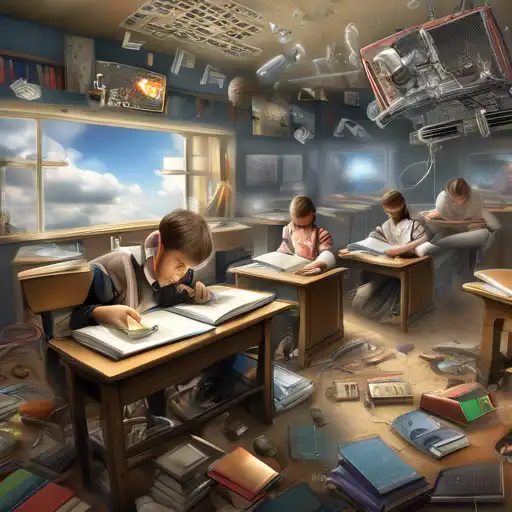The Role of Technology in Shaping Modern Education
In the past few decades, technology has revolutionized every aspect of our lives, and education is no exception. From the way teachers deliver lessons to how students access information, technology has transformed the educational landscape. This article explores the profound impact of technology on modern education, highlighting both the opportunities and challenges it presents.
Enhanced Learning Experiences
Technology has made learning more interactive and engaging. Digital tools such as educational apps, virtual reality (VR), and augmented reality (AR) provide students with immersive learning experiences that were unimaginable a few years ago. For instance, VR can transport students to ancient civilizations or inside the human body, making learning more vivid and memorable.
Access to Information
The internet has democratized access to information, enabling students from all over the world to learn from top universities and experts without leaving their homes. Platforms like Coursera and Khan Academy offer free courses on a wide range of subjects, breaking down barriers to education.
Personalized Learning
Technology enables personalized learning, where educational content is tailored to the individual needs and pace of each student. Adaptive learning software assesses a student's performance in real-time, adjusting the difficulty level of tasks to ensure optimal learning outcomes.
Collaboration and Communication
Digital platforms facilitate collaboration among students and teachers, regardless of geographical distances. Tools like Google Classroom and Microsoft Teams allow for seamless communication, file sharing, and feedback, enhancing the learning process.
Challenges of Technology in Education
Despite its benefits, the integration of technology in education comes with challenges. Issues such as digital divide, where not all students have equal access to technology, and the potential for distraction are significant concerns that educators and policymakers need to address.
Preparing for the Future
As technology continues to evolve, it's crucial for educational institutions to adapt and prepare students for the future. This includes not only teaching digital literacy but also fostering critical thinking and creativity to navigate the complexities of the digital age.
In conclusion, technology has undeniably transformed modern education, offering unprecedented opportunities for learning and teaching. However, it's essential to address the challenges it presents to ensure that all students can benefit from these advancements. The future of education lies in finding the right balance between technology and traditional teaching methods to create a more inclusive and effective learning environment.
